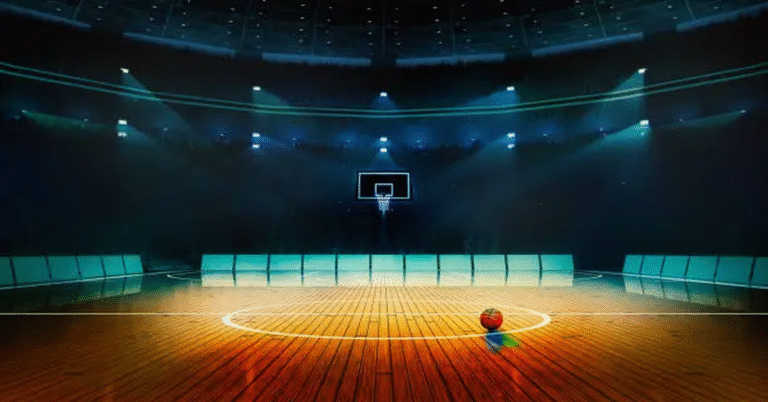
The phrase “football bros” may sound casual or even playful, but it captures one of the deepest aspects of sports: the unshakable sense of brotherhood and shared identity forged through football. Whether in high school, college, or professional leagues, football players who spend endless hours practicing, competing, and overcoming challenges together form a unique type of bond. These bonds extend far beyond the field, shaping character, discipline, and lifelong friendships.
In this article, we’ll examine the idea of “football bros” in detail—what it means, how it develops, its cultural significance, and the many layers of personal growth, teamwork, and camaraderie it entails. From the physical grind of training sessions to the emotional highs and lows of victories and losses, football bros are bound together by shared experiences. We’ll also look at the larger cultural landscape of football, how brotherhood is celebrated across communities, and the values these bonds teach young athletes.
The Meaning of “Football Bros”
At its core, “football bros” refers to the brotherhood among players who dedicate themselves to the game. The word “bros” is shorthand for brothers—not in the literal sense, but in the way that shared struggle, trust, and loyalty create a family-like connection.
Football is a demanding sport. Success on the field requires teamwork, sacrifice, and the willingness to put the collective above the individual. This environment naturally fosters strong relationships, as players depend on one another not only for athletic performance but also for emotional support. The phrase thus encapsulates:
- Brotherhood: Players looking out for each other in all circumstances.
- Shared Identity: A recognition that football is more than a game—it’s a lifestyle.
- Mutual Respect: Understanding the grind, pain, and sacrifices each teammate endures.
- Culture of Loyalty: Once a brother in football, always a brother.
The Role of Brotherhood in Football
Brotherhood is not unique to football, but the sport amplifies it due to its intensity. Football requires every player to work in harmony: a quarterback is nothing without his offensive line, a wide receiver relies on timing, and defensive players must trust each other’s positioning. This dependency builds trust and forges a kind of sibling-like loyalty.
Unlike individual sports, football creates daily moments where one player’s effort directly impacts another’s success or failure. Over time, these shared moments, victories, and defeats solidify bonds that can last a lifetime. Many retired players often remark that what they miss most is not just the game but the locker room brotherhood—the inside jokes, encouragement, and mutual accountability that defined their athletic journey.
Training Culture Among Football Bros
The bond of football bros is shaped largely during training. Grueling workouts, early morning conditioning, late-night film sessions, and long practices demand resilience. Out of this process, a shared culture emerges where each player learns not only about football but about life.
| Training Aspect | Experience Shared | Impact on Brotherhood |
|---|---|---|
| Conditioning Drills | Intense running, strength training | Builds collective endurance and shared suffering |
| Practice Scrimmages | Competitive yet supportive environment | Creates trust and accountability |
| Film Sessions | Analyzing mistakes and strategies | Encourages humility and shared learning |
| Team Meals | Eating together after practices | Strengthens social and personal bonds |
| Road Trips | Traveling for away games | Builds memories and unity |
The result of these shared experiences is a strong “us against the world” mentality that defines football bros.
The Locker Room as a Home
The locker room is often considered the spiritual home of football bros. It is here that players joke, argue, support, and prepare mentally for games. The conversations range from game strategies to personal struggles, and it’s within these four walls that the essence of brotherhood is nurtured.
In many ways, the locker room serves as a safe space where players can express their frustrations, celebrate victories, and lean on one another during difficult times. Coaches may provide leadership, but the real culture of brotherhood is sustained by players themselves. The camaraderie formed in locker rooms often spills over into everyday life, creating friendships that extend beyond the sport.
Football Bros and Team Identity
Another dimension of the football bros concept is team identity. Teams are not just collections of athletes but families with shared goals, traditions, and rituals.
- Pre-game rituals like chants, huddles, or motivational speeches become bonding moments.
- Post-game celebrations reinforce a shared sense of accomplishment.
- Team mottos or slogans often become rallying cries that define a season.
This shared identity creates a culture where being part of the team means being part of something larger than oneself. It emphasizes sacrifice, loyalty, and pride in representing the jersey.
The Mental Side of Brotherhood
While the physical grind of football is obvious, the mental dimension of football bros is equally important. Players go through enormous stress—injuries, academic pressure (in college football), competition for positions, and the fear of letting teammates down.
In these moments, brothers in football provide mental and emotional support. Encouragement during recovery from injuries, reassurance during slumps in performance, and constant reminders of shared goals all play a critical role in keeping spirits high. In essence, football bros are teammates, but they are also friends, counselors, motivators, and family members rolled into one.
Football Bros in High School and College
The intensity of football bros can differ based on the level of play.
- High School:
At this stage, football bros often reflect the close-knit nature of small communities. Players grow up together, go to school together, and represent their hometowns on Friday nights. The brotherhood here is often rooted in lifelong familiarity. - College:
College football brings together athletes from diverse backgrounds. Brotherhood here is forged through shared goals despite differences in upbringing. These relationships often carry lifelong significance, as players navigate adulthood together. - Professional:
In the pros, football bros represent a more career-driven bond. The stakes are higher, but the essence of camaraderie remains, particularly in the locker room culture and shared battles of long seasons.
Values Learned Through Football Brotherhood
Football bros embody certain values that carry over into everyday life:
- Discipline: Maintaining focus through strict routines.
- Resilience: Bouncing back from defeats and injuries.
- Leadership: Taking responsibility for the team’s direction.
- Teamwork: Understanding that success is collective, not individual.
- Respect: Valuing the effort and dedication of every teammate.
These values make football bros not just athletes but individuals prepared for challenges in all aspects of life.
Brotherhood Beyond the Field
The impact of football bros doesn’t end when the clock runs out. Former teammates often remain close long after they’ve hung up their cleats. Weddings, reunions, and professional networking are common extensions of the football bond. In many cases, the brotherhood outlasts the sport itself, serving as one of the most cherished aspects of a player’s life.
Football Bros in Popular Culture
The concept of football bros has also been celebrated in movies, television, and literature. From films like Remember the Titans to series like Friday Night Lights, the cultural representation of football often highlights the brotherhood aspect. These depictions resonate with audiences because they reveal the human side of the sport—where loyalty and friendship matter just as much as touchdowns and trophies.
Challenges Within Brotherhood
Brotherhood, while powerful, is not without challenges. Conflicts can arise from competition, jealousy, or personality clashes. Injuries and performance struggles can strain relationships. Yet, the very essence of brotherhood is learning how to overcome these obstacles together. In many ways, the challenges deepen bonds, teaching players how to resolve conflict, compromise, and support one another.
Table: Brotherhood Dynamics in Football
| Stage of Play | Key Brotherhood Experience | Lessons Learned |
|---|---|---|
| High School | Growing up and playing for hometown pride | Loyalty, community pride |
| College | Diverse teammates forging shared identity | Adaptability, cultural respect |
| Professional | High-stakes competition and locker room unity | Professionalism, perseverance |
| Post-Career | Lifelong friendships beyond football | Networking, lasting camaraderie |
Future of Football Bros
As football evolves—with new technologies, analytics, and increased awareness of player safety—the essence of football bros will remain unchanged. Brotherhood is timeless, transcending the specifics of the game itself. Future generations of athletes will continue to rely on these bonds, not just for victories but for personal growth and resilience in the face of challenges.
Conclusion
The idea of football bros is more than slang; it represents the heart of what makes football special. It highlights how the sport is not just about points, statistics, or championships, but about relationships, character, and values. The brotherhood forged through football defines lives long after the final whistle is blown.
For players, being a football bro means being part of something greater than oneself—a family built through sweat, sacrifice, and loyalty. For communities, it represents the enduring values of teamwork, discipline, and respect. And for culture at large, football bros are a reminder that sports are as much about human connection as they are about competition.
FAQs
1. What does the term “football bros” mean?
It refers to the brotherhood among football players who build deep bonds through shared training, games, and experiences.
2. Why is brotherhood important in football?
Because football requires teamwork, trust, and loyalty. Success depends on every player supporting and relying on one another.
3. Do football bros exist only at the professional level?
No, the bond is strong at all levels—high school, college, and professional football—each with its unique dynamics.
4. What values do football bros learn from the sport?
Discipline, resilience, teamwork, leadership, and respect are core values taught through football brotherhood.
5. Does the football bros bond last after players retire?
Yes, many former players maintain lifelong friendships, often saying the brotherhood is what they miss most after retirement.







